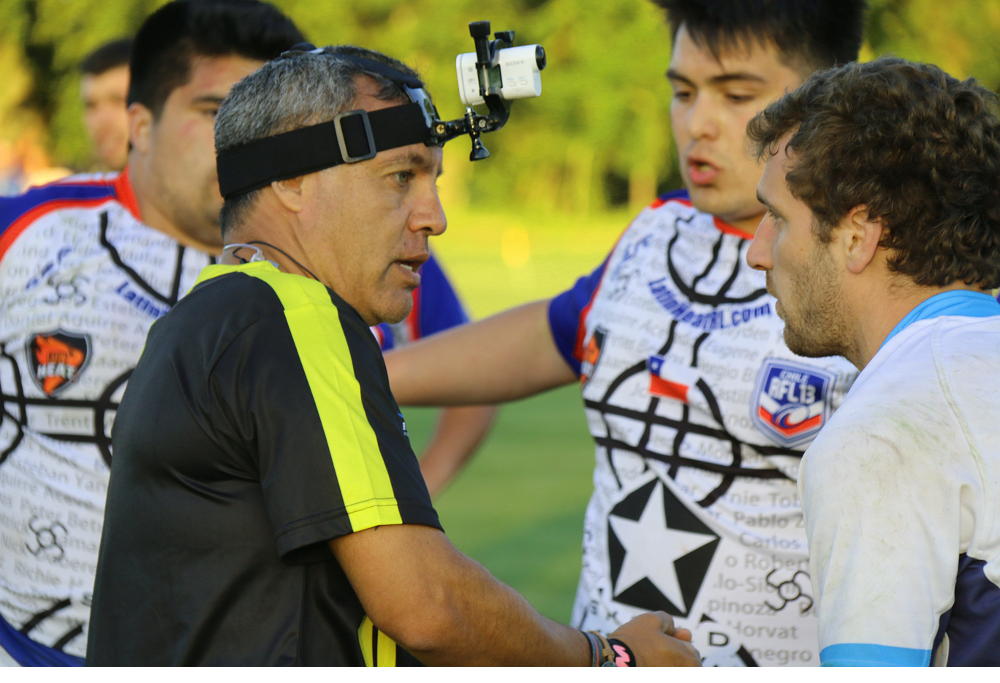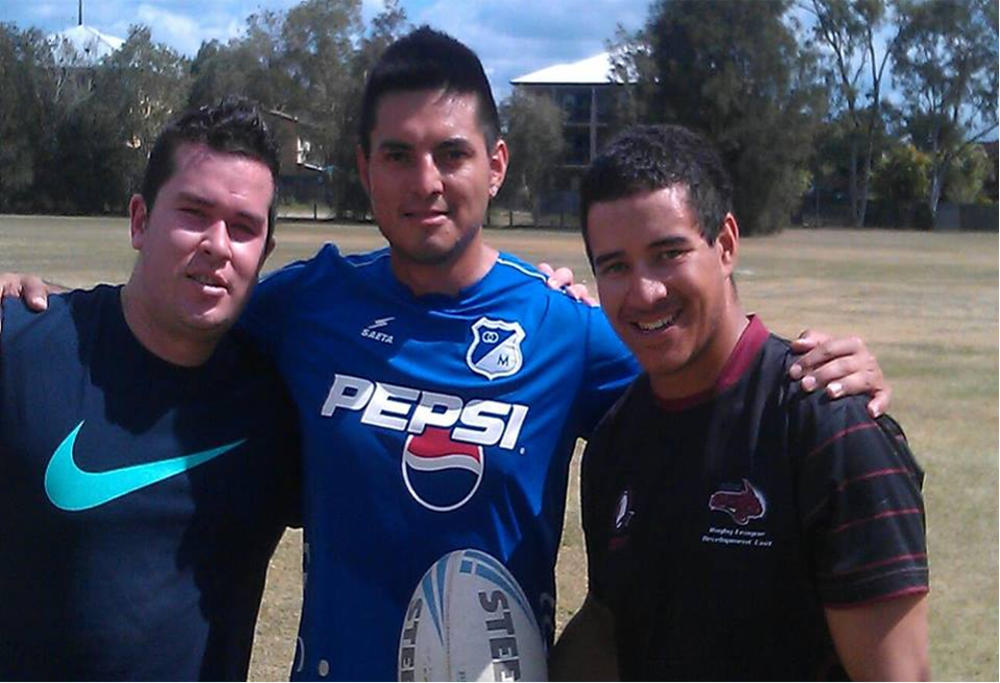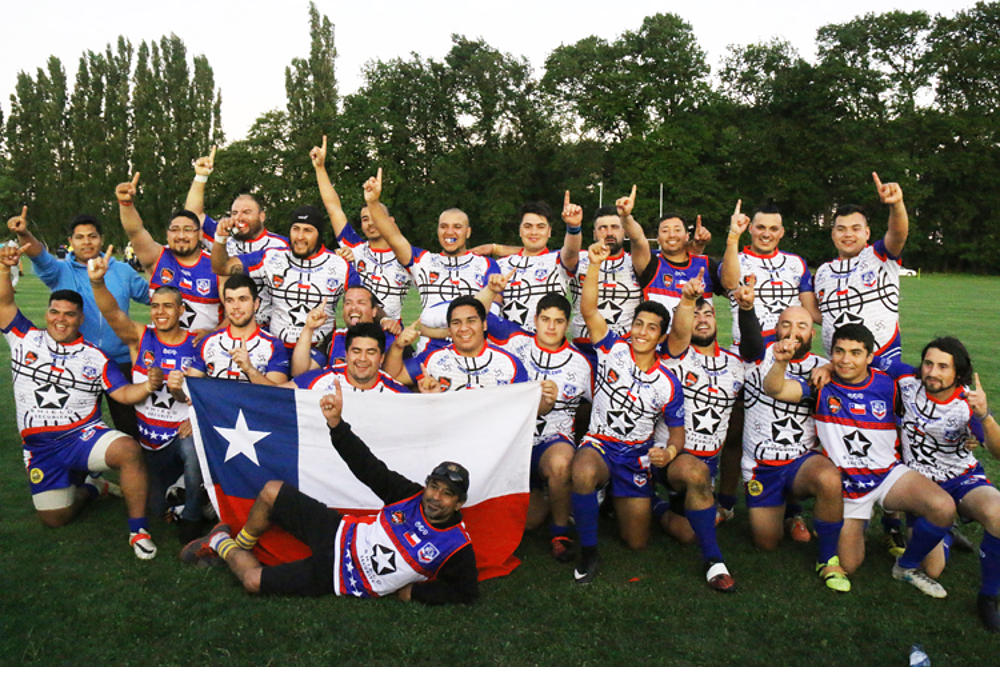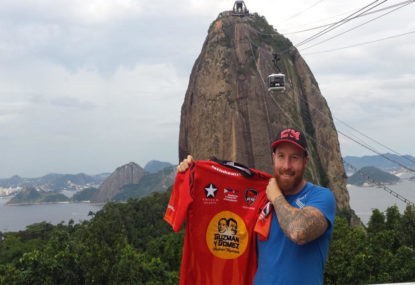Roar Expert Robert Burgin helped administer the first Latin American Championship of rugby league on November 17-18. Here he tells of how this bizarre adventure became reality – and how it gives hopes to other average fans who want to play a part in growing their sport.
I first dreamt of taking rugby league to Latin America when I was eight.
At the time I was living in Housing Commission in Brisbane, my parents had just gone through several years of messy custody battles and I had moved to a new school.
My mother had married a second time – to an ill-tempered alcoholic – and, when I looked around my new classroom, I was 100 per cent convinced I was the ugliest, poorest, weakest, most unstable, least talented kid of the bunch.
I’ve already rewritten the start to this story several times, concerned it sounds too much like I am trying to big-up myself.
But what ultimately inspires me to persevere is my eldest niece Emmalee now graduating from high school, a child whose trajectory bears more than a passing resemblance to my own.
I’m also motivated to write this because of those beloved friends and family who may feel they have let dreams creep beyond their fingertips. And furthermore, I can hopefully exhibit how some simple actions have amplified impact in later years.
So there I was at age eight, the personification of the unwanted, red-headed stepchild that is now part of common parlance.
When we played cricket at lunchtime, I was fortunate if the other kids would even let me creep into the outfield, let alone have a bat or bowl.
It’s important to note my hot-headedness probably didn’t help me win friends at this stage either, as my fiery outbursts inevitably pushed others even further away.
Except for this Argentinian kid Maurizio Merollini.
For whatever reason, he befriended me and invited me over to his house when nobody else would dare.
I remember some distinct details about the first few visits: the gorgeous smell of his mother’s freshly-cooked empanadas, his crazy older brother repeatedly shooting a full-powered crossbow at an esky in a suburban backyard, us spending hours building model aeroplanes, setting them on fire and then sending them down a piece of string until they crashed in flames against a tree.
In retrospect, I’m almost certain some of those planes were Harrier jets and this was not long after the Falklands, but this detail was lost on me as a child.
Mostly, however, I remember how engrossed his whole family was with the 1986 FIFA World Cup, held in Mexico. It seemed to be constantly on television; an over-riding and contagious passion.
If his mother’s cooking, setting things on fire and escaping my own home didn’t seem like good enough reasons already, this advent of a whole family feverishly supporting one team (who just happened to play attractive football and become champions) was hard to resist.
By this stage, I was already a fan of the Wynnum Manly Seagulls in rugby league and my list of favourite sportsmen bubbled into a weird mishmash of Gene Miles and Diego Maradona, Bob Lindner and Sergio Batista, Colin Scott and Oscar Ruggeri.
The next year, 1987, marked the first Rugby Union World Cup and just for the hell of it, I decided I would support Argentina instead of Australia in that as well.
It wasn’t for another year, possibly two, that I grew to realise Argentina didn’t compete at all in my favourite sport – rugby league.
That revelation seemed bizarre and incongruous to a child with a simple outlook. How could they not love rugby league? If they had this burning passion for these other sports, then why not The Greatest Game of All?
Further to that point, why were none of the other Latin American teams that I loved to watch in football involved in league in any capacity?
From there a little acorn was planted; a wrong that demanded to be righted.

I wouldn’t say this was an omnipresent consideration through the following years of my life, but it was always a thought in the back of my mind.
It grew substantially larger in 2008 when I left a nice job I was fortunate to hold with the Queensland Rugby League essentially to go travelling, but also for some deeper existential reasons.
By then I’d spent almost a decade in sports media, writing about what other people were achieving, but not really accomplishing a hell of a lot myself.
I looked around the office one Thursday night at 10pm and saw three bald colleagues chained to their desks, skipping dinner and time with loved ones to complete a task that seemed incredibly important at the time, but ultimately, was probably inconsequential.
Right then and there, I knew something had to change or that would be me in years to come.
One of the first places I visited when I quit was Colombia.
I had for several years been sponsoring a Colombian boy, Jose, through school, and I had reached a point where I wanted to do something with my life that helped more than one person, something that was significantly larger than taking care of my own needs.
It was a short trip, but I ended up backpacking a lot in the next five years, and it was a subsequent three-month stint through Latin America in 2009 which had the biggest impact.
On my first week in Peru, I met a guy on a bus named Raul Gonzalez who said to me, “Latin America is a place where the very best things can happen and the very worst can too. You will love it”.
And that came to be some sort of prophecy. Not for a long time had I felt so challenged, invigorated, alive.
There was an absence of bureaucracy, a presence of danger and a heightened importance of making personal judgments that really flicked my switch.
Sadly that perception of being some sort of dashing adventurer and wildman all came crashing down one morning when I awoke in Rio de Janeiro to ten missed calls. My mother had died back in Brisbane of a sudden heart attack at age 51.
The months that followed bought much reflection, about what we should value most in life, what I had to offer (if anything at all) and where everything should lead to next.
One of the last interactions I had with my mother was her gifting me the book Love in The Time of Cholera, in which Colombian author Gabriel Garcia Marquez penned a memorable line:
“Human beings are not born once and for all on the day their mothers give birth to them, but … life obliges them over and over again to give birth to themselves.”
I took something from that. Along with an antiquated map of Latin America and some other trinkets that meant something from my travels, I had those lines tattooed down my arm.
In the next year, there were four important things that came to happen.
First I moved to the north of England to spend the last few years of my grandparents’ lives alongside them. This was deciding what to value most.
Secondly, when I wasn’t talking to them, I spent way too much time playing Football Manager, a simulation game that was as close to managing a sports club as virtual reality allowed. This was struggling to find purpose.
Thirdly, I decided I had skills in communication, negotiation and rugby league, so I organised a meeting with my favourite club Hull FC and told them of a strategy to champion their expansion and community footprint in Lincolnshire, the next county south.
They listened but ultimately knocked it back. This was believing I had something to offer. This was being told, hold on, maybe you don’t.
Lastly, I met my soon-to-become Brazilian wife while working at a gym in the middle of a snow blizzard when it was -16 degrees.
I had no money to buy razors to shave and was sleeping in my car some nights to save petrol on the drive home. This was pure serendipity.
When all these things combined, I realised that I could no longer spend countless hours pretending to be a sports administrator in a computer game.
If I was willing to put that much time into it, then why not create something in the real world that gave real benefit and joy to people – and stopped me from burying my dreams in a digital screen.
The idea of ingratiating Latin Americans with rugby league came back from my past. The universe must have wanted it to happen, because when I took my coaching refresher course, I met an NRL Development officer from Colombia – Dan Sarmiento – the only Spanish-speaking NRL employee I am aware of.
Together with another league enthusiast and Ecuadoran partner, Matthew Brown, we became co-founders of what would become known as Latin Heat, the abbreviated form of Latin American Rugby League.
At our first training session, we had three players, all Colombians. One was incredibly hungover from a party the night before. Another had been spotted by Dan and I while he worked as security for a women’s clothing store in the Queen Street Mall.

“Hey, are you Latino? You’re big enough to play in our team if you’re interested,” was the basic gist of our recruitment spiel.
Latin Heat’s first 80-minute game against the Philippines was a 114-0 loss and featured predominantly novices across the field, including some plucked from nightclubs.
Now, almost five years later, we have more than 300 Latino-heritage players in Australia alone. We have started domestic leagues in multiple Latin American countries.
We have an offshoot team in the USA. Our 100 per cent volunteer-run group meets annual expenses of around $75,000 to keep teams clothed, insured, well-trained and promoted.
No, we were not strictly the first people to introduce Latin Americans to league. Argentina played an Australian Police team in 2005 in a two-game series.
There were reports of Venezuelan and Mexicans within the oil industry playing one-off games decades ago.
However, we are comfortable in saying our modest group has helped facilitate the first consistent pathways to international representation for players who have Latin American blood.
The jewel in the crown has always been staging a Latin American Championships of the sport, held on Latin American soil and bringing teams from around the continent together in the same way the Copa America does in soccer.

For our first edition this month we had Chile hosting the tournament in the southern city of Los Angeles, and opposition venturing from Colombia, Brazil and Argentina.
The latter three teams all earnt a Rugby League International Federation ranking for the first time. It was no easy feat at all – a huge financial and logistical exercise – particularly after Mexico was forced to withdraw (replaced by Brazil) with only a matter of days to spare.
There are dozens of people who made it a reality but it would be remiss not to mention Rodrigo Millar and Ronald Soto Badilla by name, two people who turned the event from plans on paper to an actual, living thing.
And for those who are more interested in the product on the field – rest assured the performances from all teams were at the very least equal to what has been seen in other developing nations around the world.
The record books will show Chile defeated Argentina 32-12 in the final, while Colombia beat Brazil 22-18 in the third-place playoff.
Beyond that, the enquiries and enthusiasm we’ve received from other Latino nations and players has been truly heart-warming.
Several of the nations are now mapping out a realistic plan for qualifying for future Rugby League World Cups.
So no, I never did play a notable role in making rugby league popular in Lincolnshire. And I can still look around a packed room and be the ugliest, poorest and craziest person in it.
But what I do know is that if you truly want something, are prepared to shut out the doubters, listen to intuition, work hard and place your trust in the general goodness of the community, dreams will come true.
They will be infinitely more fulfilling than investing time into a strategy simulation that gets turned off when someone calls your name for dinner.
































































































